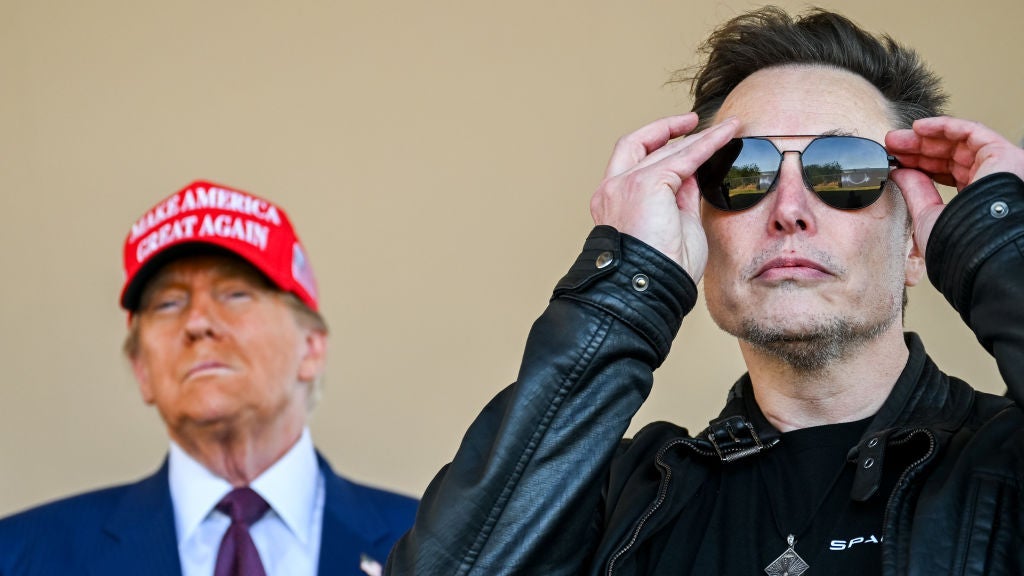
As US President Donald Trump pursues wide-ranging policy goals from increasing immigration control enforcement to dismantling government agencies, the courts continue to represent the biggest check on his power, according to Daniel Farber, Sho Sato professor of law at UC Berkley and author of Contested Ground: How to Understand the Limits of Presidential Power.
Speaking on an episode of GlobalData’s Insight Insights podcast, Farber said: “Congress has not been a check at all. The Republicans have a majority in Congress, and they seem to be afraid to vote against him […] on almost anything.”

Access deeper industry intelligence
Experience unmatched clarity with a single platform that combines unique data, AI, and human expertise.
“I think it’s the courts that are the largest check or possible check at this point, and we’ve seen them start to become active, with a number of lawsuits being filed and courts issuing very preliminary orders in many of these lawsuits.”
Executive order action
While executive orders have been one of Trump’s most used political tools so far, Farber explains that, in legal terms, the President is simply directing someone to do something or report back on an issue, but “nothing actually changes in the world until the subordinate actually does take action,” which could take a long time because something like “repealing an existing regulation may actually take several years to accomplish.”
In this sense, it’s important to distinguish between what the President has the power to do with these orders and what he doesn’t. There are still actions he can take unilaterally, like exiting the Paris Agreement, which was not through an executive order but “was a presidential action, which he has the legal power to do himself.”

US Tariffs are shifting - will you react or anticipate?
Don’t let policy changes catch you off guard. Stay proactive with real-time data and expert analysis.
By GlobalDataTariffs and migration
While Trump has been particularly vocal on the issues of tariffs and migration, Farber noted that there are disputes about those areas.
“Congress has the primary responsibility for regulating international trade under the Constitution, but some of those statutes are quite broad, and the one he’s been relying on is supposed to be dealing with emergency situations of various kinds,” he explained. “It’s not at all specific about what actions he can take.”
While some experts argue the law doesn’t allow for him to impose tariffs, Farber thinks most courts would “uphold his ability to do that under the emergency economic order.”
Some judicial opinions say Trump would have more power of his own when it comes to migration because “it involves international affairs.” In that area, he is trying to “take enforcement of those laws,” in particular about how people can come into the country and who can get deported, “to a whole new level.” That said, there still has not been the “political will or the funding” to create the infrastructure necessary to deport the estimated 13 million undocumented migrants living in the US.
But Farber thinks one of the things the public doesn’t focus on as much that will have some of the direst effects are Trump’s actions in the executive branch, such as closing the United States Agency for International Development (USAID) offices.
“I think in the long run, that could have a huge effect on the way American government works, but it’s something that’s not as easy to grasp for the public as something like tariffs.”
Pushing the law
Of the extent to which the President has sought to use his power, Farber outlined: “Trump has been very aggressive and, really, has gone to the limits – and I think beyond the limits – of what existing law allows him to do.”
Many have characterised his policy approach in the first few weeks as ‘shock and awe.’ Farber has suggested Trump might be acting this way “in the hope that he simply won’t be challenged because he’s being very forceful and he’s moving very quickly,” and he adds that this may be “partly in the hope that the courts might change the law in the favour of giving the President […] complete personal control over every single person who works for the government, which I view as dangerous to democracy.”
The extent of Elon Musk’s involvement in the government, meanwhile, is also testing the limits of the country’s system of checks and balances.
“Nobody actually anticipated the possibility that, you know, the richest man in the world would be given such freedom to move at will throughout the federal government,” Farber said. “And, you know, make changes […] So, the legal issues are not always super clear about what his role is.”
Farber added that, similarly to Trump, Musk appears to be “trying to move so quickly that the courts will never be able to catch up to him.”







